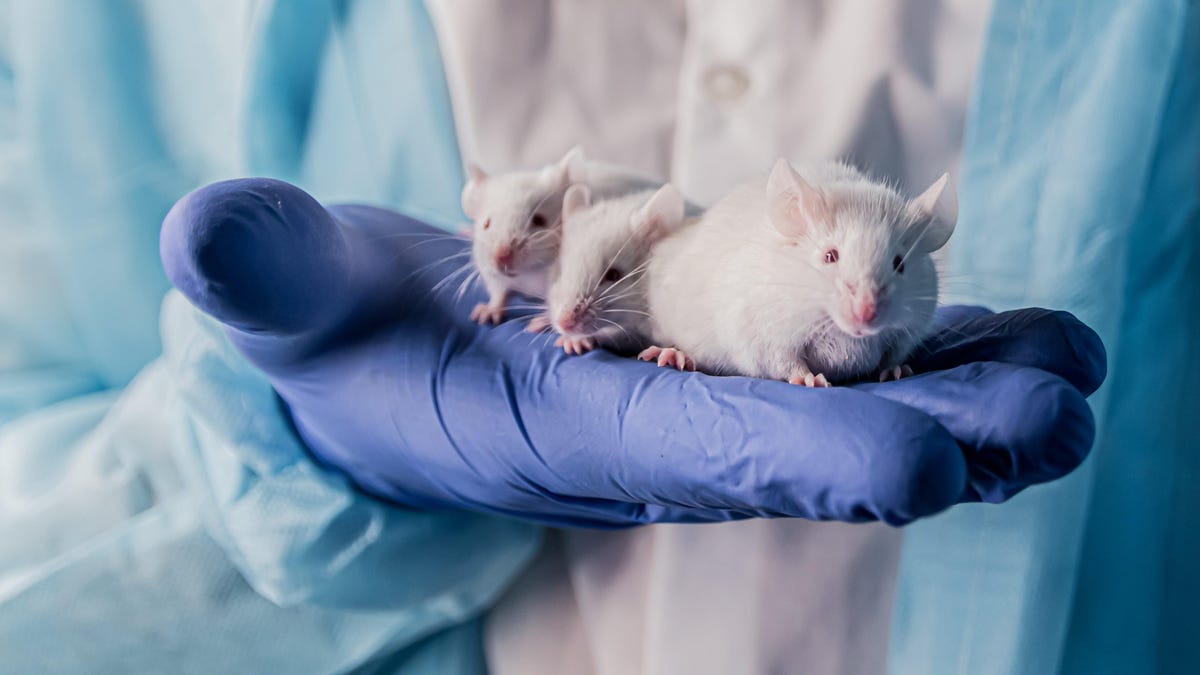
A new study this week points to a potential transmission risk of Alzheimer’s disease. Researchers found evidence in mice that an inherited form of the neurological disorder can be passed on via bone marrow donation. While such a danger has yet to be confirmed in humans and likely to be infrequent if it can happen, the authors say more research has to be done to investigate the possibility.
The research was led by scientists from the University of British Columbia. They were interested in studying cells that produce something known as the amyloid precursor protein (APP)—proteins that have several important functions but can also be turned into amyloid beta, a protein thought to play a driving role in Alzheimer’s disease. In those with Alzheimer’s, a misfolded and damaging version of amyloid beta accumulates in the brain, eventually forming into clumped-together deposits called plaques (a similar process occurs with the tau protein).
Advertisement
Most cases of Alzheimer’s are caused by multiple factors working together, such as age-related changes in the brain. But there are known inherited mutations that can make someone much more likely to develop it, usually at an earlier age than normal. Some of these mutations involve the gene that regulates APP production in cells. APP-producing cells aren’t just found in the brain, though, but throughout the body, including within our bone marrow. So the authors, led by immunologist Wilfred Jefferies, were curious about the potential of these outside cells to cause Alzheimer’s as well.
Advertisement
“We wondered, therefore, whether a familial form of Alzheimer’s disease could be initiated in a mouse after injection of the bone marrow from an afflicted mouse into the bloodstream of a normal mouse,” Jefferies told Gizmodo in an email.
Advertisement
The team first bred mice carrying a defective version of the APP gene found in humans, one that would ensure their development of Alzheimer’s. Then they transplanted bone marrow from these mice to two other groups of mice: mice with a normal APP gene and mice bred to have no APP gene at all. Following the transplantation, both groups of mice developed symptoms of cognitive impairment and clear signs of Alzhemer’s, such as plaque build-up in the brain. Those without the APP gene became sick quicker than expected, however, showing symptoms at six months old on average (both the original and normal APP-carrying mice began to show symptoms around nine months).
The findings, published Thursday in Stem Cell Reports, appear to demonstrate that “the mutated gene in the donor cells can transfer and cause” Alzheimer’s, Jefferies said. And while the mice without APP became sicker faster, the results suggest that even healthy individuals could be at risk from this route of infection.
Advertisement
Other scientists have found evidence that Alzheimer’s can be transmitted between people, though only under very rare and specific conditions, such as the donation of contaminated human growth hormone extracted from cadaver brains (a practice long since ended). And if there is a real transmission risk of familial Alzheimer’s via bone marrow transplantation, it’s likely to be low.
But based on their findings, the authors do “urge further investigation of this phenomenon,” Jeffries said. “We also advocate that human donors of blood, tissue, organ, and stem cells should be screened to prevent the inadvertent transfer of disease during blood product transfusions and cellular therapies.”
Advertisement
The authors plan to keep looking into the matter themselves. They would like to better understand exactly how these donated APP-producing stem cells, which can only turn into blood cells or platelets, not neurons, go on to trigger Alzheimer’s. They also hope to study whether other types of transplantation can transmit the disease or whether it’s possible to treat Alzheimer’s by transplanting normal cells to those afflicted with the condition; early animal trials involving stem cells have found some promising results for this approach.
Services Marketplace – Listings, Bookings & Reviews